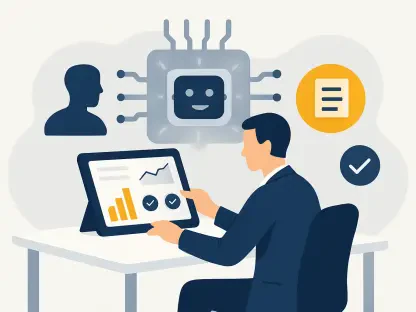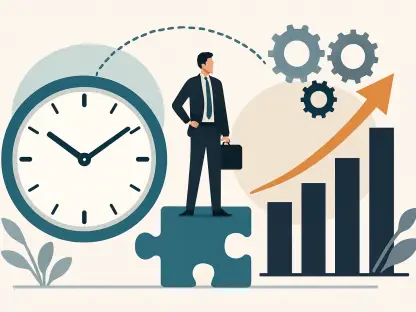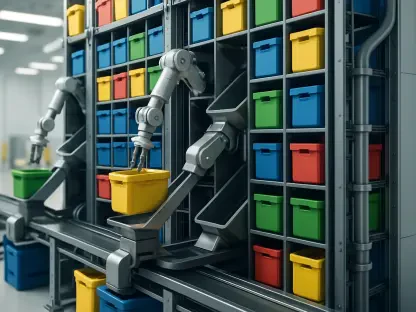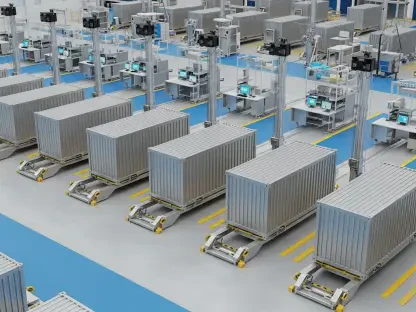Picture a future where healthcare transcends the boundaries of hospital walls, where a patient in a remote village receives the same vigilant care as someone in a bustling city center, and where technology equips doctors to intervene before a health crisis unfolds. This transformative vision is becoming reality through the pioneering work of Subrahmanyasarma Chitta, a data engineer whose Internet of Things (IoT) innovation is reshaping global healthcare. Unveiled at a prestigious international tech conference in 2024, Chitta’s remote monitoring system harnesses IoT, machine learning, and real-time analytics to redefine how patient care is delivered. By enabling continuous health surveillance outside traditional clinical settings, this technology promises a smarter, safer, and more accessible medical landscape. This article explores the profound impact of Chitta’s system, delving into its technical ingenuity, real-world benefits, and the broader implications for the future of medicine. It’s a glimpse into how connected solutions are tackling some of healthcare’s most pressing challenges with unprecedented precision.
Empowering Medical Professionals with Technology
The essence of Chitta’s IoT system lies in its ability to amplify the capabilities of healthcare professionals rather than replace them. By integrating wearable sensors and predictive analytics, the platform delivers real-time health data directly to medical staff, enabling quicker and more informed decision-making. Imagine a doctor receiving an alert about a patient’s irregular heart rate before symptoms become apparent—this kind of proactive insight is now possible. The system acts as a digital partner, sifting through vast amounts of information to highlight critical issues, allowing clinicians to focus on high-priority cases. This synergy between human expertise and technological precision marks a significant shift, ensuring that medical decisions are not only faster but also grounded in comprehensive, reliable data. As a result, the burden of constant manual monitoring is reduced, giving healthcare providers the breathing room to deliver personalized attention where it matters most.
Beyond enhancing decision-making, this technology addresses a critical pain point in clinical environments: the overwhelming volume of data. Chitta’s system employs advanced algorithms to filter out irrelevant noise, presenting only actionable insights through intuitive dashboards. This streamlined approach minimizes the risk of oversight while ensuring that medical staff are not bogged down by unnecessary information. A notable outcome is the reduction in mental fatigue among professionals, who often grapple with long hours and high-stakes environments. With alerts delivered 25 milliseconds faster than traditional methods, every second counts in emergencies, offering a crucial edge in life-threatening situations. Furthermore, the system’s design integrates seamlessly into existing workflows, avoiding the steep learning curves often associated with new technology. This thoughtful balance of innovation and usability underscores how Chitta’s platform is not just a tool, but a transformative force in supporting the human element of healthcare.
Breaking Down Barriers to Healthcare Access
A defining strength of Chitta’s IoT platform is its mission to democratize medical care, ensuring that geography or resources no longer dictate the quality of treatment. For patients in rural or underserved regions, access to consistent health monitoring has often been a distant dream, limited by distance or infrastructure. This system changes that narrative by enabling hospital-grade surveillance from the comfort of home. Wearable devices transmit vital signs to a cloud-based platform, where data is analyzed and relayed to healthcare providers regardless of location. This means a patient in a remote area can receive timely interventions without the need for frequent, costly trips to urban centers. Such accessibility not only improves health outcomes but also fosters equity, ensuring that vulnerable populations are no longer left behind in the pursuit of quality care.
Equally important is how this technology supports individuals with mobility challenges or chronic conditions requiring constant oversight. Elderly patients, for instance, can remain in familiar surroundings while still being closely monitored for potential health risks. The platform’s ability to provide continuous data collection eliminates the gaps often experienced in periodic check-ups, catching subtle changes that might otherwise go unnoticed. Beyond physical access, it also reduces the financial strain on families who struggle with the costs of repeated hospital visits. By extending the reach of medical expertise to every corner of society, Chitta’s innovation tackles systemic inequalities head-on. It redefines what it means to have access to care, proving that advanced healthcare solutions can be inclusive and adaptable to diverse needs, ultimately creating a more connected and responsive medical ecosystem.
Prioritizing the Patient Experience
Central to Chitta’s vision is a commitment to patient-centered care, where technology serves not just clinical needs but also emotional well-being. The IoT system personalizes monitoring by adapting to individual health baselines, ensuring that alerts are relevant and tailored to each person’s unique profile. This customization significantly reduces unnecessary notifications, which can often cause anxiety or desensitization among patients. Instead, individuals receive meaningful updates that keep them informed without overwhelming them. Reports indicate a 20% improvement in mood and engagement, a testament to how feeling genuinely cared for—rather than merely observed—can uplift spirits. This focus on empathy through technology illustrates a deeper understanding of healthcare as a holistic experience.
Moreover, the system’s design minimizes disruption to daily life, a crucial factor for those managing long-term conditions. Discreet alerts, such as nighttime notifications for diabetic patients experiencing dangerous glucose levels, ensure safety without undue stress or embarrassment. This subtlety empowers patients to maintain a sense of normalcy, integrating health management seamlessly into their routines. By prioritizing psychological comfort alongside physical health, the platform reimagines the patient role from passive recipient to active participant. Such an approach not only enhances trust in the technology but also encourages adherence to medical guidance. Chitta’s innovation stands out for recognizing that effective healthcare must address the whole person, blending data-driven precision with a compassionate touch that resonates on a human level.
Unveiling the Technical Mastery
Behind the life-changing impact of Chitta’s system lies a robust technical framework that sets it apart in the realm of digital health. Wearable devices, connected through Bluetooth, Wi-Fi, or cellular networks, continuously gather critical health metrics such as heart rate, blood pressure, and glucose levels. This data is securely transmitted to a cloud platform where sophisticated machine learning algorithms, including support vector machines and neural networks, analyze it for patterns and anomalies. The result is a system that learns and adapts to each patient, distinguishing normal variations from potential threats with a 30% increase in monitoring accuracy compared to conventional methods. This precision is vital in building trust among healthcare providers who rely on automated insights for critical decisions.
Another technical triumph is the system’s ability to combat alarm fatigue, a pervasive issue in clinical settings. By employing noise-filtering techniques like moving averages and exponential smoothing, it ensures that only significant alerts reach medical staff, drastically cutting down on false positives. The speed of these alerts—25 milliseconds faster than traditional systems—provides a critical window for intervention in emergencies. Additionally, the user-friendly interface, complete with graphical summaries and targeted notifications, transforms complex data into accessible insights for clinicians. This seamless integration of cutting-edge technology with practical usability highlights the system’s role as a game-changer. It’s a testament to how engineering brilliance can drive medical advancements, offering a scalable solution that meets the demands of modern healthcare with unmatched efficiency.
Demonstrating Tangible Benefits in Real Life
The true value of Chitta’s IoT platform emerges in its real-world applications, where it has already proven its capacity to save lives and streamline care. Consider the case of a cardiac patient whose irregular rhythm was detected early, allowing intervention before hospitalization became necessary. Such instances showcase the system’s strength in early detection, preventing minor issues from escalating into full-blown emergencies. Similarly, diabetic patients benefit from discreet alerts about critical glucose fluctuations, often delivered at night to avoid disruption or panic. These examples underline how the technology delivers peace of mind alongside clinical effectiveness, ensuring that patients and families can trust in timely, accurate responses to health challenges.
From a systemic perspective, the platform offers substantial efficiency gains for healthcare providers grappling with resource constraints. A reported 15% reduction in operational costs stems from fewer unnecessary hospital visits and optimized emergency responses, allowing facilities to allocate resources where they’re most needed. This financial relief is coupled with a reduction in staff burnout, as the system’s intelligent alerts free up time previously spent on manual monitoring or addressing false alarms. The ripple effect is a higher quality of care, as medical teams can dedicate their focus to patients with urgent needs. These measurable outcomes validate the system’s potential to transform not just individual experiences but entire healthcare infrastructures, proving that innovation can yield both human and economic benefits.
Shaping Tomorrow’s Medical Landscape
Looking ahead, Chitta’s vision offers a compelling blueprint for the evolution of healthcare, one where technology and humanity are inseparable partners. The IoT system prioritizes intelligent, subtle notifications over constant interruptions, preserving the personal connection between patients and providers while leveraging data for better outcomes. Its versatility shines through in applications spanning chronic disease management, elderly care, and post-rehabilitation monitoring, addressing a wide array of medical needs with a single platform. This adaptability positions it as a cornerstone for tackling systemic issues like capacity limits and staff shortages, paving the way for a more resilient healthcare framework that can scale with growing demands.
Reflecting on the journey, Chitta’s innovation marked a turning point in how connected medicine was perceived and implemented. It demonstrated that technology could extend beyond mere efficiency, embedding empathy and accessibility into its core. As healthcare systems worldwide adapted to evolving challenges, this system stood as a powerful reminder of what was possible when vision met execution. Moving forward, the focus should shift to expanding such solutions, ensuring that more communities benefit from digital health advancements. Collaboration between tech developers, medical experts, and policymakers will be key to scaling these innovations, addressing remaining gaps in access, and refining systems for even greater impact. This legacy of progress serves as an inspiration, urging stakeholders to build on past achievements to create a future where quality care knows no boundaries.









